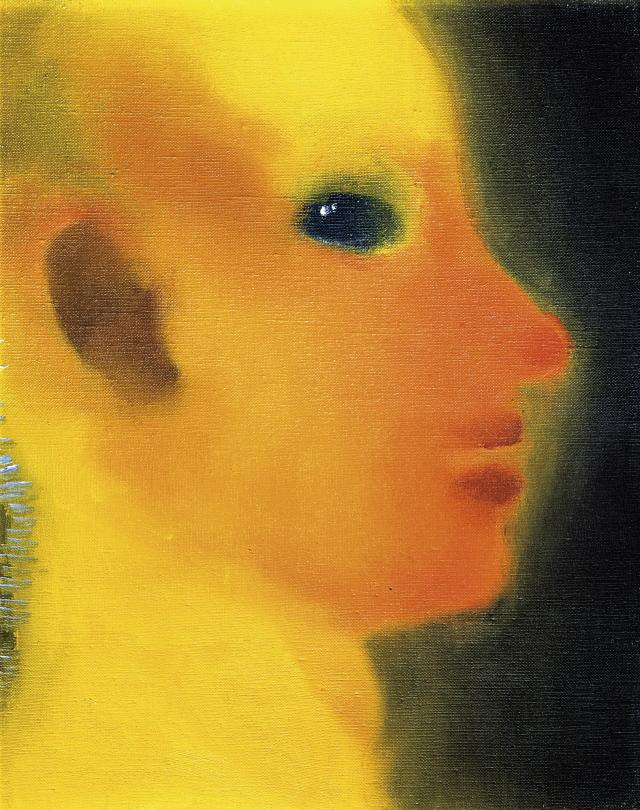At the end of the 1960s, Miriam Cahn began drawing on large sheets of paper, laid directly on the floor, amidst charcoal and black chalk dust. Already conceived as autonomous works of art resulting from a very physical creative process, close to performance art, her first sketches seem to be possessed by the body of the artist, who reveals her personal experience to us in a direct and natural way.
Around 1990, she pursued, standing up and in smaller formats, the exploration of graphic, sometimes disturbing landscapes, filled with animals and blurred human silhouettes which emerged from a dark and neutral background in an aura of diffuse light, like impalpable ghosts (L.I.S zuviele tiere, 1990). At the same time, Cahn started painting with oils, with pure and intense colours, whose particular vividness recalled the modern aestheticism of fluorescent lights or X-rays, with a powerful retinal impact.
Confined within an empty and impersonal space, her portraits of hybrid figures seemed to light up from inside to vibrate with an evanescent and enigmatic presence (pferdeartig / animal sound, 1997). At the boundaries of animism, in these works the artist revealed her personal perception of a primitive universe before culture, where human beings, animals and plants still formed an inseparable whole – unless she was wanting to express the innocence and fragility inherent to all biological existence.
A committed artist, Cahn also made central to her thinking current events in the world around her and contemporary preoccupations like the status of women, exile and war, omnipresent in her work. Above all, it is war’s injustices, its primitive regressions and its heavy toll in terms of human sacrifices that the artist strives to express through the forlorn and vulnerable characters of her paintings (anfall, 2008). Exiting from their isolation, they then become the links in a fertile exchange, the actors of a huge tragedy which the artist deploys in intuitive hangings-constellations. According each of her works the same equivalence, Miriam Cahn considers her artistic approach not as a quest of the work of art, but as a constant serial practice, arising from daily and existential work.
Around 1990, she pursued, standing up and in smaller formats, the exploration of graphic, sometimes disturbing landscapes, filled with animals and blurred human silhouettes which emerged from a dark and neutral background in an aura of diffuse light, like impalpable ghosts (L.I.S zuviele tiere, 1990). At the same time, Cahn started painting with oils, with pure and intense colours, whose particular vividness recalled the modern aestheticism of fluorescent lights or X-rays, with a powerful retinal impact.
Confined within an empty and impersonal space, her portraits of hybrid figures seemed to light up from inside to vibrate with an evanescent and enigmatic presence (pferdeartig / animal sound, 1997). At the boundaries of animism, in these works the artist revealed her personal perception of a primitive universe before culture, where human beings, animals and plants still formed an inseparable whole – unless she was wanting to express the innocence and fragility inherent to all biological existence.
A committed artist, Cahn also made central to her thinking current events in the world around her and contemporary preoccupations like the status of women, exile and war, omnipresent in her work. Above all, it is war’s injustices, its primitive regressions and its heavy toll in terms of human sacrifices that the artist strives to express through the forlorn and vulnerable characters of her paintings (anfall, 2008). Exiting from their isolation, they then become the links in a fertile exchange, the actors of a huge tragedy which the artist deploys in intuitive hangings-constellations. According each of her works the same equivalence, Miriam Cahn considers her artistic approach not as a quest of the work of art, but as a constant serial practice, arising from daily and existential work.
